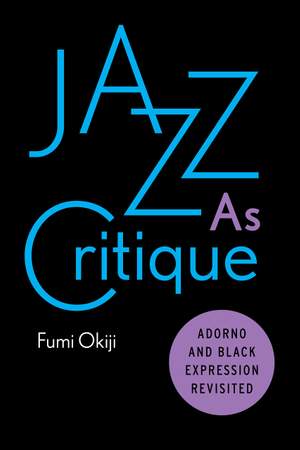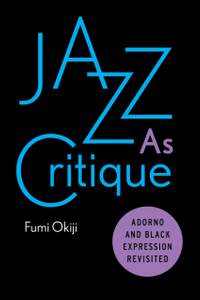Contents
- Contents and Abstracts1Jazz, Individualism, and the Black Modern chapter abstract
- This chapter seeks to establish the socio-historical basis of an alternate subjectivity, a gathering in difference in jazz, in contrast to the claims presented by some commentators-shown to relate more closely to the historical trajectory of the bourgeois
- 2Double Consciousness and the Critical Potential of Black Expression chapter abstract
- According to Adorno, autonomous works of art, by virtue of their peculiar attuned-outsider perspective, are ideally positioned to provide a kind of social critique. Although implicated socio-historically in the advance of techno-rationality-in fact, becau
- 3Black Dwelling, a Refuge for the Homeless chapter abstract
- This chapter frames some key turns of the study's central argument within a universalist inclination in black radical thought and expression. The chapter focuses on the opportunity the disjuncture between blackness and the world presents, and how it allow
- 4Storytelling, Sound, and Silence chapter abstract
- This chapter establishes the aesthetic terms of jazz's social character by showing that the tension between wanting to tell communal stories and doing so with distinction permeates jazz work and tradition. Drawing on Walter Benjamin's "The Storyteller: Re
- 5Postscript: Some Thoughts on the Inadequacy and Indispensability of Jazz Records chapter abstract
- The study concludes with a dialectical riffing on the indispensability and the inadequacy of jazz recording as a representative of the music's principles of structuration. It is suggested that jazz recording is destructive, that it congeals and obscured h
- Introduction chapter abstract
- This introductory chapter sketches the broad strokes of the argument that unfolds over the course of the book. A recording of the Charles Mingus Sextet at Cornell University anchors the chapter. In it is heard socio-musical work that appears to instantiat




